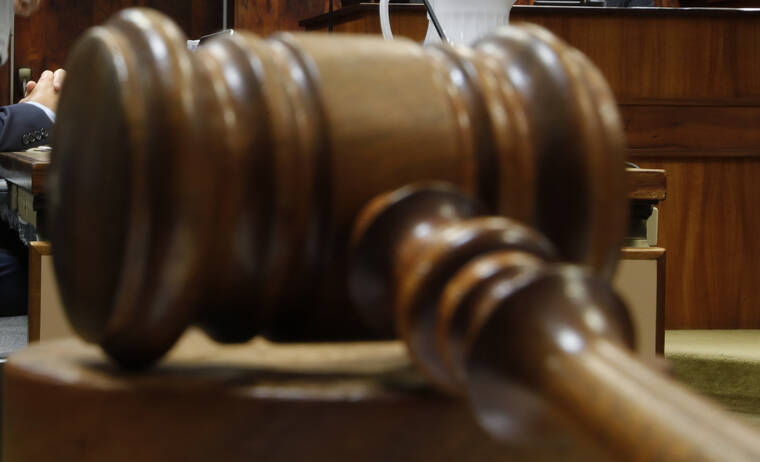‘Compulsive gambler’ asks for 30-month federal sentence
A Kona man who bilked 45 investors in his online lei business out of $1.2 million to fuel a high-stakes gambling habit in Las Vegas is asking a federal judge to sentence him Wednesday to 2-1/2 years in prison.
Newton Kaleo Okamoana Deleon, 48, is a “compulsive gambler,” and his habit led him “down a path of destruction” that cost him his career as an educator, his marriage and a relationship with his three children, his attorney, Michael Green, wrote in a sentencing memorandum filed April 30.
ADVERTISING
From at least 2017 and continuing through December 2020, Deleon used money from his investors to pay for his wagering addiction.
When he was up big, Deleon wrote to senior U.S. District Judge Hellen Gillmor that he “lived a whole month in the Penthouse suite at the Bellagio. I was gambling everyday. I’d lose, then I’d get more money (through the fraudulent activity associated with the case) and I went on this crazy streak. At one point, I was up $600,000 in two days. … I bought two Rolexes and two cars, a Chevy Tahoe and a Chevy Traverse … and in less than 24 hours I lost all the money. I had to go back to the dealer to return my car.”
In 2018, with his “marriage in shambles,” Deleon concocted a scheme to fuel his gambling habit where investors would put $5,000 into his business for a period of three months and get at least $7,500 back.
In the agreements he asked investors to sign with his business, leiorders.com, Deleon would repay the investors their “principal loan investment plus a substantial return within a set time frame, usually approximately one month,” according to a federal criminal information authored by Assistant U.S. Attorney Rebecca A. Perlmutter and filed Sept. 6. “(Deleon) also promised to repay a return of profit, ranging from approximately 10% to 40% and additional fees ranging between approximately $100 to $500 per day if the principal and return were not repaid by the agreement’s designated approximate one-month period.” Deleon “well knew that he would not be able to repay the principal” or additional return promised in the agreements.





